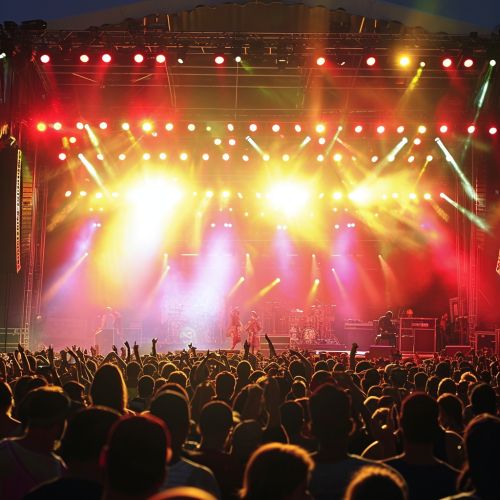Russian pop music
Overview
Russian pop music, often referred to as Russkaya popsa, is a significant genre within the Russian music industry. It emerged in the Soviet era and has since evolved, incorporating influences from Western pop music and traditional Russian folk tunes. The genre is characterized by its catchy melodies, simple lyrics, and the use of electronic instruments.


History
The roots of Russian pop music can be traced back to the late Soviet era, specifically the 1970s and 1980s. During this period, the Soviet Union witnessed a cultural shift, with Western influences seeping into the music scene. Artists began experimenting with Western genres, leading to the birth of Russian pop music.
The 1990s marked a significant period for Russian pop music. Following the dissolution of the Soviet Union, the music industry experienced a boom. This era saw the emergence of many popular artists who continue to influence the genre today. The 1990s also marked the beginning of the Russian chanson movement, a genre that blends Russian folk music with pop elements.
The 2000s brought about a new wave of Russian pop music, with artists incorporating elements of dance, rock, and R&B into their music. This period also saw the rise of reality TV music competitions, which played a crucial role in promoting new talents and shaping the future of the genre.
The 2010s and beyond have seen the continued evolution of Russian pop music, with artists experimenting with various sub-genres and incorporating influences from global pop trends.
Characteristics
Russian pop music is characterized by its melodic nature, often featuring catchy hooks and choruses. The lyrics are typically simple and relatable, dealing with themes such as love, relationships, and everyday life.
The genre makes extensive use of electronic instruments, with synthesizers and drum machines being common. However, traditional Russian instruments such as the balalaika and accordion are also occasionally incorporated, creating a unique fusion of modern and traditional sounds.
Influence and Impact
Russian pop music has had a significant impact on the country's cultural landscape. It has played a crucial role in shaping the modern Russian music scene and has influenced other genres such as rock, hip hop, and electronic music.
The genre has also had a global impact, with Russian pop songs gaining popularity in various countries. This has led to increased recognition of Russian artists on the international stage.
Notable Artists
Numerous artists have made significant contributions to Russian pop music. Some of the most notable include Alla Pugacheva, who is considered the queen of Russian pop music, and Philipp Kirkorov, a prominent figure in the industry since the 1990s.
Other notable artists include Valery Meladze, who is known for his soulful ballads, and the duo t.A.T.u., who gained international fame in the early 2000s.
Future Trends
The future of Russian pop music looks promising, with new artists continually emerging and pushing the boundaries of the genre. There is a growing trend towards incorporating elements of other genres, such as hip hop and electronic music, which is likely to continue in the coming years.
